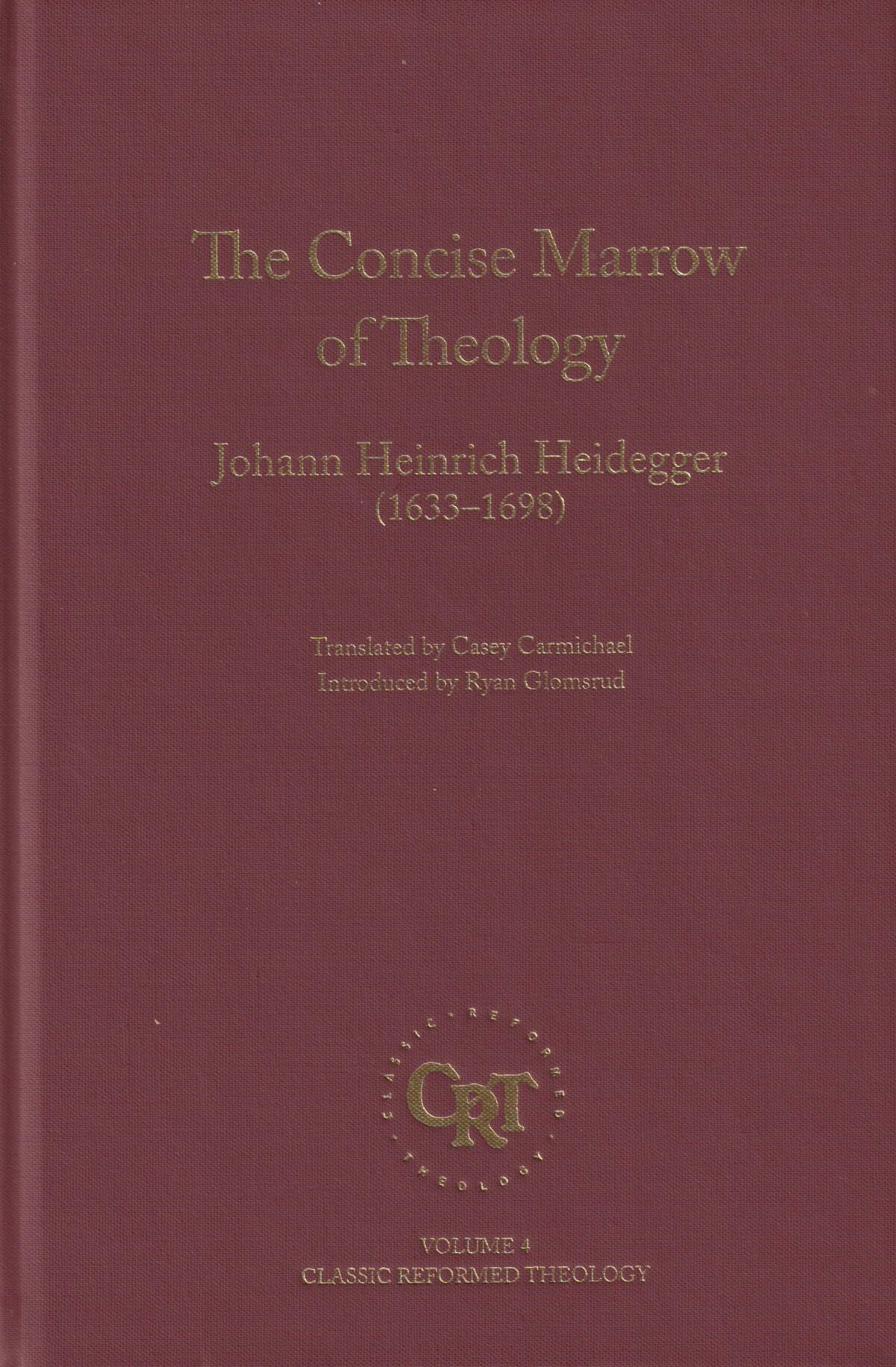A Book Review from Books At a Glance
By Ryan McGraw
Johan Heinrich Heidegger (1633-1698) is not likely a household name in Reformed circles today. Yet Heidegger served as a professor in Heidelberg and Zurich in what is known as the high orthodox period of Reformed orthodoxy. Francis Turretin (1623-1687) referred to him regularly in his famous Institutes of Elenctic Theology, and he was well known in his time. Heidegger also wrote three systems of theology, of which this one was the shortest. This present work is brief and the translation is highly readable. Heidegger offers modern readers great insight into classic Reformed thought without bogging them down in a multi-volume text. This book will reward those who digest its contents, giving them a glimpse of the careful precise, biblical fidelity, and even piety of historic Reformed thinking.
Heidegger’s Compendium covers the entire system of doctrine in roughly two-hundred pages. He is not as full or precise as some more well-known abbreviated systems, such as those of William Ames or Johannes Wollebius. Yet Heidegger introduces readers to all of the basic theological terms and distinctions that they need to understand the system of Reformed doctrine. This will help people grasp the marrow of Reformed thought, while leaving many questions underdeveloped. Heidegger has also removed all almost all references to other authors, including the church fathers, opting instead to introduce readers to the most relevant Scripture passages substantiating his claims. His definitions are simple and clear, but this will be a harder beginning text than the ones by Ames and Wollebius mentioned above. Students were largely meant to memorize a text like this one in order to serve as a bridge to reading more complex treatments of theology.
The editors list three reasons to study classic Reformed texts like this one (ix). First, they give the intellectual background of modern theology. Second, they represent part of the heritage of those who identify with the Reformed confession. Third, Reformed orthodoxy was a vital spiritual movement that warrants our attention. Heidegger fulfills all of these aims, and more, admirably. He intended this book to be a stepping stone to larger theological works (xx). As Ryan Glomsrud notes in the introduction, “Heidegger aimed to introduce his readers to a consensus summary of the Reformed tradition as a whole” (xxiv). In this respect, it is now a steppingstone to modern English readers into the broader world of classic Reformed thought.
Ryan M. McGraw
Greenville Presbyterian Theological Seminary
Buy the books

THE CONCISE MARROW OF CHRISTIAN THEOLOGY, by Johann Heinrich Heidegger